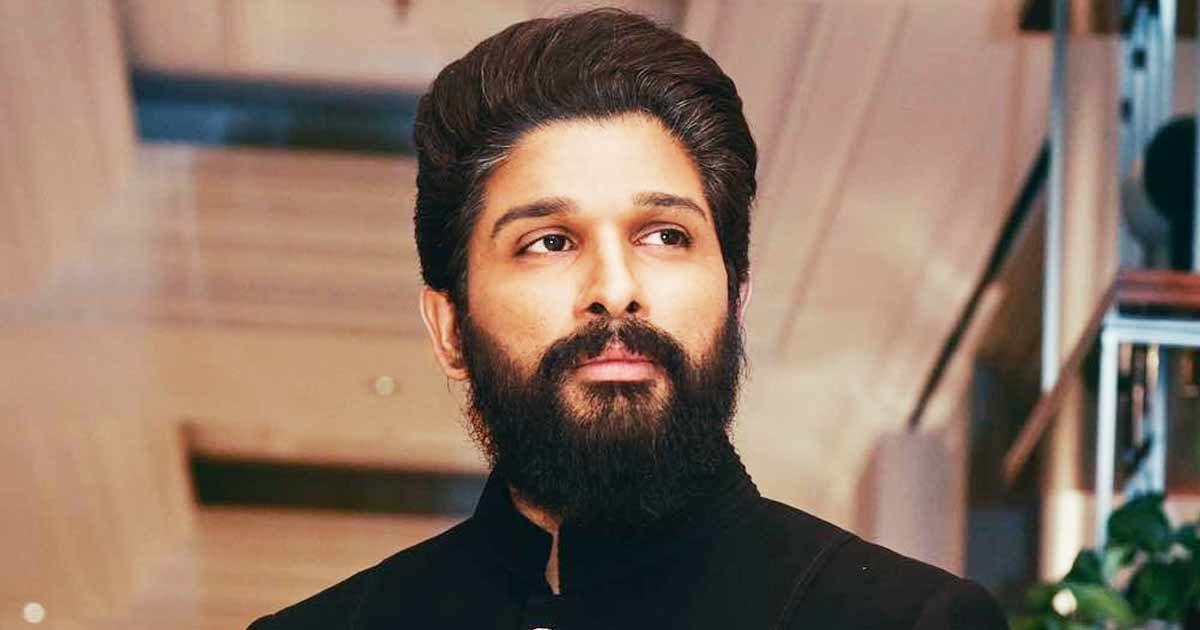
In Tollywood, nepotism is a hot topic, as many current stars hail from filmy clans. Telugu cinema often favors kin. A striking instance is Allu Arjun.
Emerging from a prestigious film dynasty, Allu Arjun, son of producer-distributor Allu Aravind and Nirmala, is connected to Telugu cinema luminaries like Chiranjeevi, Ram Charan, and Pawan Kalyan. With support from this influential family, he entered the industry seamlessly, debuting at three years old in his uncle Chiranjeevi’s film. Following the typical path of second-generation actors, his father launched him as a lead at 21 in ‘Gangotri,’ directed by K Raghavendra Rao.
Arjun’s role in the nepotism chatter in Telugu entertainment gains weight with his recent feat: clinching the National Film Award for Best Actor for his performance in ‘Pushpa: The Rise‘ (2021), helmed by Sukumar. This accolade holds weight, as male actors from the industry hadn’t bagged such recognition before, crowning Arjun as the first Telugu male actor to grab this honor. The discourse over his merit for the award persists, inviting critical examination. Let’s objectively ponder: does he genuinely merit this acknowledgment?
Trending
Allu Arjun has impressed audiences with his versatility, transitioning between romantic, comedic, and action roles. Director Sukumar’s debut film ‘Arya’ (2004) played a crucial role in shaping Arjun’s career, establishing him as a beloved actor in Telugu and Malayalam cinema.
Following the triumph of ‘Arya,’ Arjun sustained his winning streak with ‘Bunny’ (2005) and ‘Happy’ (2006), garnering praise in Kerala after their Malayalam dubbed versions’ distribution. His prowess in dance, comedic flair, and on-screen chemistry further fueled his ascent to stardom in Andhra Pradesh and Kerala. Allu Arjun, fondly dubbed ‘Mallu Arjun’ by Malayali admirers, holds a substantial fan following in Kerala despite encountering setbacks in recent film ventures. ‘Pushpa’ aided in reclaiming some lost ground in the state.
Diving into roles that deeply resonated with the younger generation, Arjun kept his winning streak alive with subsequent hits like ‘Desamuduru (2007)’ (dubbed as ‘Hero: The Real Hero’ in Malayalam) and ‘Parugu (2008)’ (dubbed as ‘Krishna’ in Malayalam), both making waves in Andhra Pradesh and Kerala. Riding on his prior success, Arjun teamed up with Sukumar again for ‘Arya 2’ in 2009, a spiritual sequel to Arya, catapulting him to unprecedented fame. This film cemented Arjun’s image as a superstar, effortlessly mastering romance, action, dance, and comedy.
In his seventh year in the industry, Arjun encountered a setback with ‘Varudu’ (2010), directed by Gunasekhar. The film, also titled ‘Varan’ in Malayalam, diverged from Arjun’s Stylish Star image and leaned towards traditionalism, failing to resonate with his loyal fan base.
Varudu represented a new beginning for Allu Arjun as he attempted to redefine his image, breaking away from typecasting. Concurrently, he starred in Krish Jagarlamudi’s “Vedam,” a departure from conventional Telugu cinema, earning acclaim for his role in the ensemble cast. Despite briefly venturing into unconventional projects, Arjun returned to his familiar territory as the Stylish Star due to the evolving landscape of Telugu cinema and the emergence of other nepo babies. While ‘Badrinath’ (2011) was commercially successful, criticism was aimed at his character portrayal.
Allu Arjun made a spectacular comeback the following year with the action comedy ‘Julayi (2012)’ (titled ‘Gaja pokiri’ in Malayalam) directed by Trivikram Srinivas. With both swagger and charm, qualities inherent to Arjun, he effortlessly displayed them in Julayi, solidifying his status as a top-tier star. After the triumph of the Puri Jagannadh-directed flick ‘Iddarammayilatho (2013)’ (titled ‘Romeo and Juliets’ in Malayalam), which propelled Arjun back into the spotlight, he fully immersed himself in commercial cinema.
In 2014, Allu Arjun starred in the action comedy Race Gurram, directed by Surender Reddy, known as Lucky The Racer in Malayalam. It became the highest-grossing Telugu film of the year.
Allu Arjun’s subsequent films — S/O Satyamurthy (2015) by Trivikram Srinivas, Sarrainodu (2016) (renowned as Yodhavu in Malayalam) by Boyapati Srinu, DJ: Duvvada Jagannadham (2017) by Harish Shankar, Naa Peru Surya, Naa Illu India (recognized as Ente Peru Surya Ente Veedu India in Malayalam) (2018) by Vakkantham Vamsi, and Ala Vaikunthapurramuloo (2020) (dubbed as Angu Vaikuntapurathu in Malayalam) directed by Trivikram Srinivas — primarily aimed at pleasing his fan base and hinged solely on his Star persona for success.
The National Film Awards have had surprising winners over the years, sometimes leaving audiences and critics questioning the choices, particularly in the Best Actor category. Examples like Anil Kapoor for Pukar (2000) and Akshay Kumar for Rustom (2016) highlight this trend, with Allu Arjun’s recent win adding to the discussion. While Arjun’s portrayal was commendable, whether he deserved the National Award remains debatable.
In conclusion, while he may be a product of nepotism, his talent cannot be denied. Although he had a more leisurely start than average, it doesn’t diminish his worth. Success is a combination of skill and luck. He has demonstrated his acting prowess by dominating the Kerala market, where his relatives have no influence. His superstar status in Kerala proves he’s more than just a beneficiary of nepotism, especially considering he achieved this before the era of pan-Indian releases.
Follow Us: Facebook | Instagram | Twitter | Youtube | Google News



 Follow Us
Follow Us









